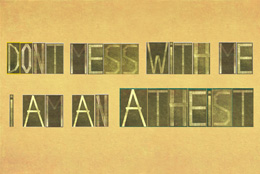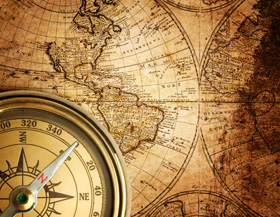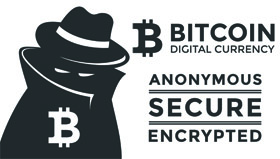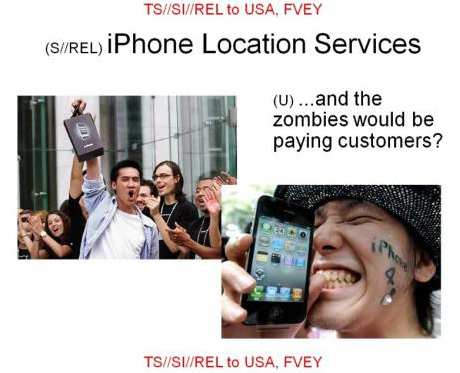Why Gary North Is Wrong About Bitcoin

I like Gary North. I appreciate his work and I spent a very pleasant hour hanging out with him at FreedomFest a few years back. We have mutual friends. I saw the headline for his anti-Bitcoin article but didn’t take time to read it until we got several emails asking about it.
So, with respect that is due, here’s why Gary is wrong, point by point:
Ponzi Economics
I’ll quote Gary in italics, then respond in a plain font. The section titles are his.
… someone who no one has ever heard of before announces that he has discovered a way to make money. In the case of Bitcoins [sic], the claim is literal.
First, whether we’ve heard of him or not is meaningless, and here Gary sets a negative, suspicious tone.
Second, Satoshi didn’t say he could “make money,” he created a program that would verify crypto-currency. That’s not really the same.
He made this money out of digits. He made it out of nothing. Think “Federal Reserve wanna-be.”
Money out of digits isn’t true at all. Bitcoin is money made with cryptography – with mathematics. And as much as I like Gary’s preferred gold and silver, mathematics is eternal, built into the very nature of the universe. That’s hardly a soft foundation. Those who don’t understand mathematics may jump to the conclusion that Bitcoin is “unbacked,” but that position is simply ignorant.
Likewise, to call Bitcoin a Fed wannabe is opposite to the truth. Bitcoin is the Anti-Fed.
The individual who sells the Ponzi scheme makes money by siphoning off a large share of the money coming in… The money was siphoned off from the beginning. Somebody owned a good percentage of the original digits. Then, by telling his story, this individual created demand for all of the digits.
And Gary knows this how? (Suspicion is not a proof.) If fact, he can’t know it, and that’s one of the beauties of the currency – there are no names attached.
And how was the money “siphoned off”? Someone, we don’t know who, started mining bitcoins, a fairly difficult process. In other words, they worked to get it, just like people work to get gold out of the ground. Gold miners and early Bitcoin miners – in identical fashion – made big initial finds. Shall we despise and accuse them for it?
Lastly, Satoshi did NOT “tell his story” or “create demand.” Satoshi disappeared. Gary can guess that Satoshi is working under some other name now, but he has no way of knowing that.
The coins will never be the money of the future. This is my main argument.
“I know what will happen in the future” is very poor logic and is very far from compelling.
The Austrian Theory of Money’s Origins
Gary begins by quoting old definitions of money. There is nothing particularly wrong with those definitions, but are they supposed to negate progress for all time? To freeze the world in place? Should they make any new adaptation evil? I hardly think that was their intent.
Here is the central fact of money. Money is the product of the market process. It arises out of an unplanned, decentralized process. This takes time. It takes a lot of time. It spreads slowly, as new people discover it as a tool of production, because it increases the size of the market for all goods and services.
Bitcoin is nothing but the operation of market forces – there is zero coercion involved.
Bitcoin is utterly decentralized – there is no center at all.
Bitcoin is utterly unplanned – it involves a million people, all doing their own thing.
As for speed, the Bitcoin idea was created in the 1990s and has been implemented for almost five years. How slow is slow enough?
No one says, “I think I’ll invent a new form of money.”
Yes, they do! That’s precisely what the first person to use gold did!
Bitcoins Are Not Money
Admittedly, those who got in early on this Ponzi scheme are doing very well. They will probably continue to do well for a time.
Honestly, this reads like an appeal to envy.
As more people hear about this investment, which is justified in terms of its future potential as money, more people will buy it… [like] late investors in Charles Ponzi’s scheme thought they were buying into the arbitrage potential of foreign postage stamps.
I’m sure some people will think of Bitcoin as an investment (which it is not) or that it is an arbitrage vehicle (which it is not) and will do stupid things. Some people always do stupid things. So what?
I and many others have been saying that Bitcoin is a crypto-currency, not an investment. We’ve also warned incessantly that it is new and has enemies. In a How to Use Bitcoin report we issued just last week, we said “This is not a place for the timid,” and, “There are no guarantees.”
Bitcoins are not an alternative currency. They are something you buy in the midst of a mania, and you will sell at some point in order to get back your money.
Here we see something sad and ironic: a man who hates the Fed, trying to ruin the one tool that can actually slay the Fed.
Bitcoin is not important because its price is rising – it’s important because it takes the control of money away from the cartel.
Concern with the dollar equivalent is a fetish, a distraction. The purpose of Bitcoin – the intent of Satoshi – is not to play price games, but to dis-empower the fiat cartel.
Just Say No
In order for Bitcoins [sic] to become an alternative currency, there will have to be millions of users of the currency.
Umm… there are, or at least soon will be. Everything new starts from zero.
They will have to develop in a market on their merit as money.
Perhaps Gary is unaware, but tens of thousands of people are using Bitcoin precisely because it is better money. Consider sending money to your cousin in Manila via a bank wire or Western Union; then compare that to sending Bitcoin.
What Goes Up, Comes Down
… the market will unravel. It will unravel for the same reason that all Ponzi schemes have unraveled: not enough new buyers. When the new buyers do not show up in great numbers, the holders will start to dump them.
There have been several “crashes” already, and the majority of Bitcoin holders sat firm – because they actually USE the currency and want to continue using it.
Furthermore, “buyers” is mostly a misnomer, applying only to the most ignorant Bitcoin holders.
This mania is going to be the stuff of best-selling books. This is going to be this stuff of Ph.D. dissertations in economics and psychology. This is going to be the equivalent of Mackay’s book, Extraordinary Popular Delusions and the Madness of Crowds.
Translation: “People will make fun of you!”
Conclusion
Anytime that anybody tries to sell you an investment, you have to look at it on this basis: “What are the future benefits that this investment will give final consumers?”
Again, Bitcoin is NOT an investment. And the benefit it gives is obvious: it’s better currency.
There is no economic justification of buying Bitcoins [sic] as an alternative currency.
A million of us have learned differently. All you have to do is try: Send a hundred dollars by Western Union, then send them by Bitcoin. Compare.
it was impossible as an economic concept from the beginning. The Austrian theory of money shows why.
I know Austrians who disagree.
I do not invest in capital that has no economic justification other than the greater fool theory.
So, Bitcoin users are “fools”? Hardly a charitable position to take.
My Conclusion
It’s a tragic thing: Precious metals people have been complaining about the Fed and the fiat currency cartel for decades. Then comes a tool that empowers them to both ruin the cartel and to free their precious metals… and they do their very best to destroy it.
I find the arguments in Gary’s piece to be misleading and wholly unconvincing, and I hope my reasoning is fairly clear.
But, all that said, take a look at both and make up your own mind.
Paul Rosenberg
[Editor’s Note: Paul Rosenberg is the outside-the-Matrix author of FreemansPerspective.com, a site dedicated to economic freedom, personal independence and privacy. He is also the author of The Great Calendar, a report that breaks down our complex world into an easy-to-understand model. Click here to get your free copy.]





















